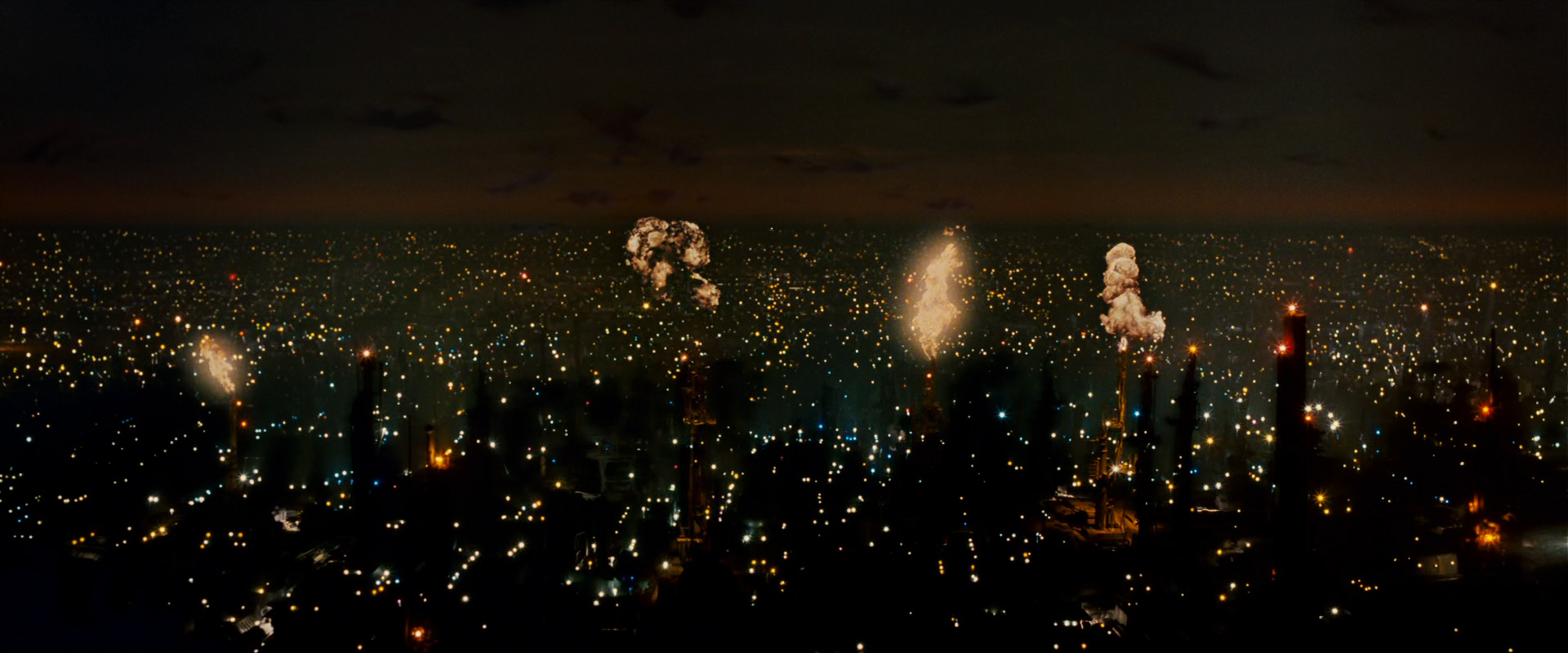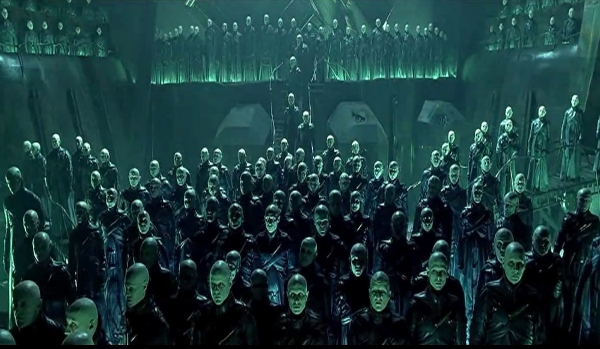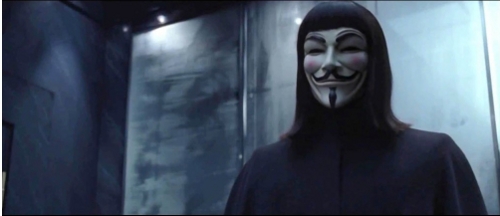
Utopias had been the dominant literary form rather than dystopias in the past: Plato & Thomas Moore invented and re-invented the utopian society in order to present their political & economic views that did not extend further than coarse socialism. Once communism became a fact in the early 20th century, socialism switched from utopian fantasies to dystopian horror. Once we figured out how horrible socialism could be in reality, the utopian genre was extinct due to the death of the socialist dream. Zamyatin published We in 1921, not long after the Bolshevik coup d’etat, and ended up as the first book to be banned by the Soviets.
Best Dystopian films

A postmodern dystopian future, released during the height of social anxiety in America that felt threatened by the Soviet Union and the technological rise of Japan. A visually stunning bleak vision set in multicultural Los Angeles, rife with East Asian imagery, plagued by pollution and environmental damage, and peopled with the underclass. A pessimistic blade runner is hired to “retire” out a group of illegal replicants. You’re left with an ambiguous ending: who is a replicant?
 Mass infertility has never been presented in a more terrifying sense. Cuaron created a world on the brink of genetic self-termination. This “denial of biology” drives home not just the absence of children, but the absence of hope and purpose. Instead of a futuristic society that deviate from contemporary society, Children of Men presents a darker version of our society. This unconventional approach allows for a greater degree of audience empathy.
Mass infertility has never been presented in a more terrifying sense. Cuaron created a world on the brink of genetic self-termination. This “denial of biology” drives home not just the absence of children, but the absence of hope and purpose. Instead of a futuristic society that deviate from contemporary society, Children of Men presents a darker version of our society. This unconventional approach allows for a greater degree of audience empathy.
 Brilliant absurdist film that reflects the lived experience of totalitarian socialism as a nightmare of bureaucratic hell. In other dystopian films, the totalitarian state is efficient, but in Brazil, the state is little more than a vast & sluggish bureaucracy, always delivered in triplicate. Brazil is 1984 improved to better reflect tyranny in the modern state.
Brilliant absurdist film that reflects the lived experience of totalitarian socialism as a nightmare of bureaucratic hell. In other dystopian films, the totalitarian state is efficient, but in Brazil, the state is little more than a vast & sluggish bureaucracy, always delivered in triplicate. Brazil is 1984 improved to better reflect tyranny in the modern state.

An Aldous Huxley styled pleasure dictatorship envisioned by Ehrlich, where the free love and luxury of the inhabitants of a domed city is occasionally interrupted by the requirement that they must die at age 30. This film hit all three dystopian themes: fear of technology, fear of population control, fear of the loss of individuality, and the fear of environmental apocalypse.
 A city where the sun never shines, with indistinguishable architecture styles, and midnight always brings amnesia to the citizens — due to the experimentation of the Strangers in order to find what makes us “human.” As an urban dystopia perfected where technological control and surveillance of citizens by an oligarchic elite, Dark City clearly echoes Fritz Lang’s Metropolis. The difference is that an individual wakes up from the Mass Ideology and turns the weapons of the Strangers against themselves.
A city where the sun never shines, with indistinguishable architecture styles, and midnight always brings amnesia to the citizens — due to the experimentation of the Strangers in order to find what makes us “human.” As an urban dystopia perfected where technological control and surveillance of citizens by an oligarchic elite, Dark City clearly echoes Fritz Lang’s Metropolis. The difference is that an individual wakes up from the Mass Ideology and turns the weapons of the Strangers against themselves.

The most utopian-apparent of all dystopian films, Gattaca is set in a near-future where reproduction is no longer a natural process, and rich couples genetically engineer their potential offspring according to a pre-selected template to maximize future opportunities and screen out anything undesirable. However, this automatically builds a caste system and forces the non-genetically enhanced people as the inferior underclass limited to menial jobs, instituting a genetic discrimination. One man, an “invalid,” is determined to make his dreams of being an astronaut a reality and beat the system.
 Set in a future autocratic and totalitarian British empire, V for Vendetta is a liberal dystopian adaptation of Alan Moore’s graphic novel that projects the end of democracy due to wars in the middle east and religious genocide of homosexuals. The protagonist, V is a masked crusader who terrorizes the members of the totalitarian government. His charisma sways the persecuted population to don Guy Fawkes mask and rise up against their corrupt masters and fight social injustice.
Set in a future autocratic and totalitarian British empire, V for Vendetta is a liberal dystopian adaptation of Alan Moore’s graphic novel that projects the end of democracy due to wars in the middle east and religious genocide of homosexuals. The protagonist, V is a masked crusader who terrorizes the members of the totalitarian government. His charisma sways the persecuted population to don Guy Fawkes mask and rise up against their corrupt masters and fight social injustice.
 The most poignant dystopian film ever that actually hid the totalitarian state from plain sight. A brilliant adaptation of Anthony Burgess’ book, it’s largely about a society on a slow decline towards total collapse. Exaggerated, but superior to the states of Logan’s Run or THX 1138, and more cynical than the inherent democratic socialism of Orwell.
The most poignant dystopian film ever that actually hid the totalitarian state from plain sight. A brilliant adaptation of Anthony Burgess’ book, it’s largely about a society on a slow decline towards total collapse. Exaggerated, but superior to the states of Logan’s Run or THX 1138, and more cynical than the inherent democratic socialism of Orwell.

A dystopian future that also doubles as a supernatural fantasy that contains both dystopian and horror elements. All human beings are born with amazing psychokinetic abilities. Since these abilities can lead to instant death and psychotic breaks, society achieves control over human thought and desire by allowing near limitless freedom to the children and then proceeds to weed out anyone that exhibits personality flaws that can lead to dangerous actions. Therefore, this “false freedom” exists within a system of totalitarian rule that does not appear as a dystopia at all.
 Since a totalitarian Japanese government censors art and news, they created a diversion called “The Program” which randomly selects 40-plus 15 year old students to participate in a survival game to the death. This program is designed to weed out rebellious and subversive elements of society, leaving behind only a cowed populace. A pulpy, psychological thriller that inspired more popular chick lit like Hunger Games.
Since a totalitarian Japanese government censors art and news, they created a diversion called “The Program” which randomly selects 40-plus 15 year old students to participate in a survival game to the death. This program is designed to weed out rebellious and subversive elements of society, leaving behind only a cowed populace. A pulpy, psychological thriller that inspired more popular chick lit like Hunger Games.
Honorable Mentions
1984: the archetype of all dystopian films that critiqued the Stalinist communism with an all-powerful, all-knowing state bent on total control over its citizens.
Soylent Green: the perfect consumerist solution made necessary after the US suffered a total economic & environmental collapse.
City of Lost Children: visually amazing French film where a brutal overlord rules an island, and creates a machine that drains the dreams of others.
Ghost in the Shell: a dystopian world set in the cyberpunk future where both humans and cyborgs can be hacked. An analysis of the existential nature of humanity as embodied shells.
THX 1138: an excellent version of the traditional Orwellian state undermined by an incongruent critique of consumer capitalism (Buy more. Buy more now. Buy. And be happy.)